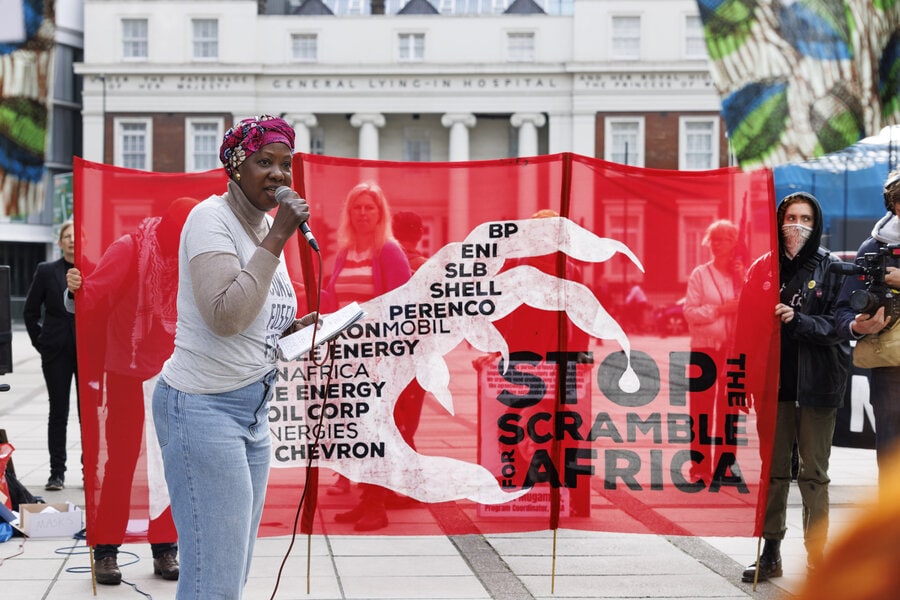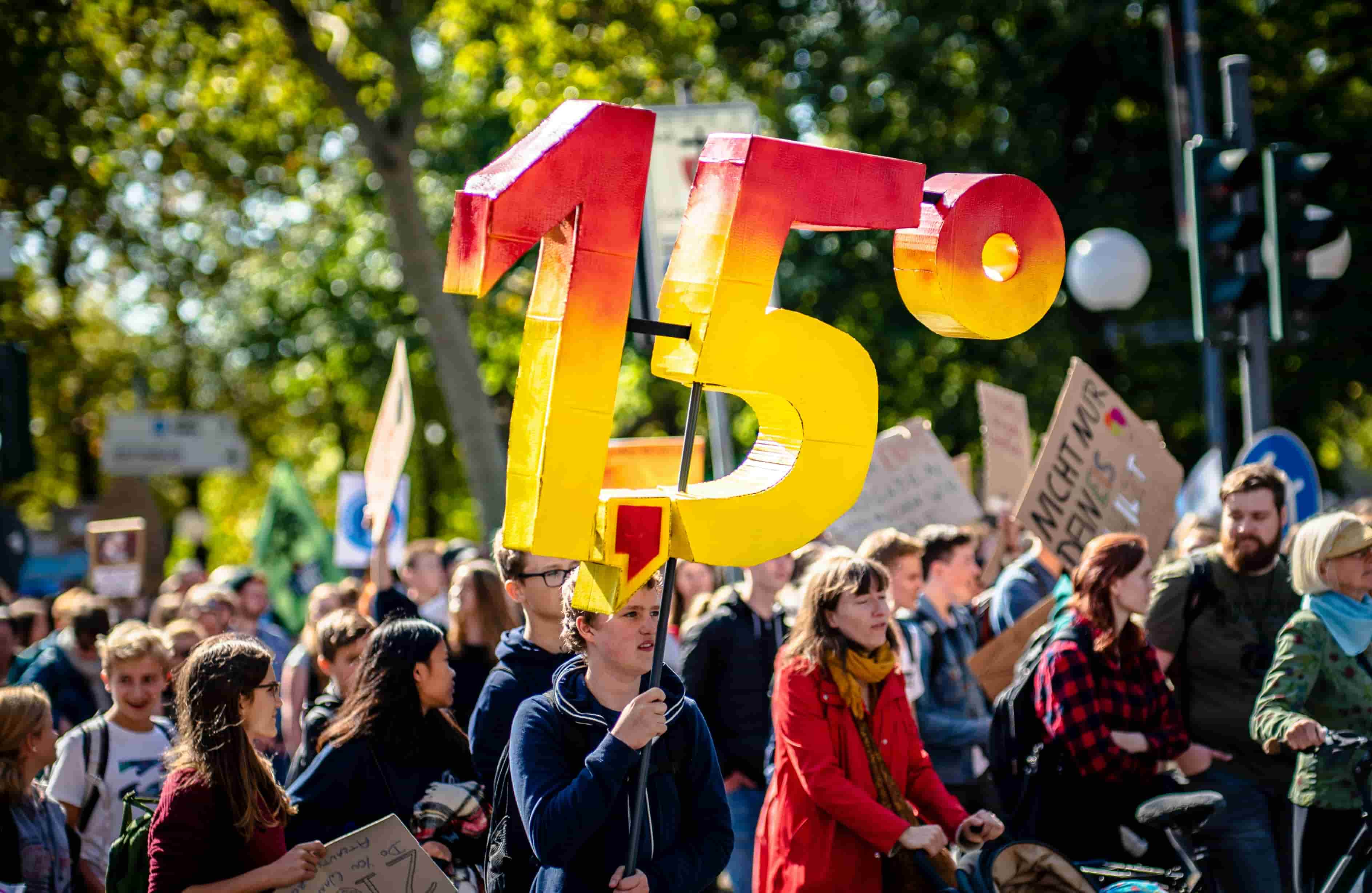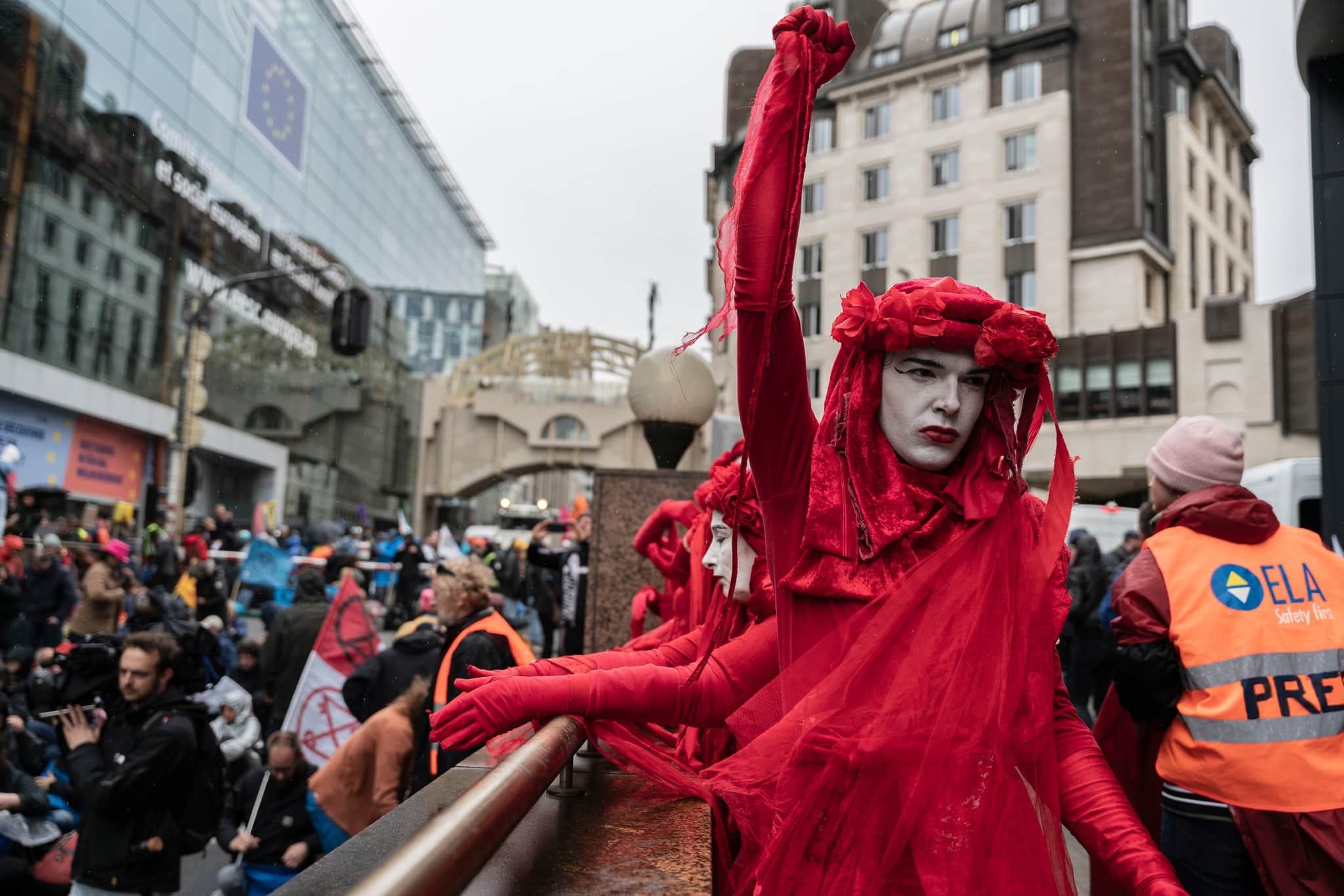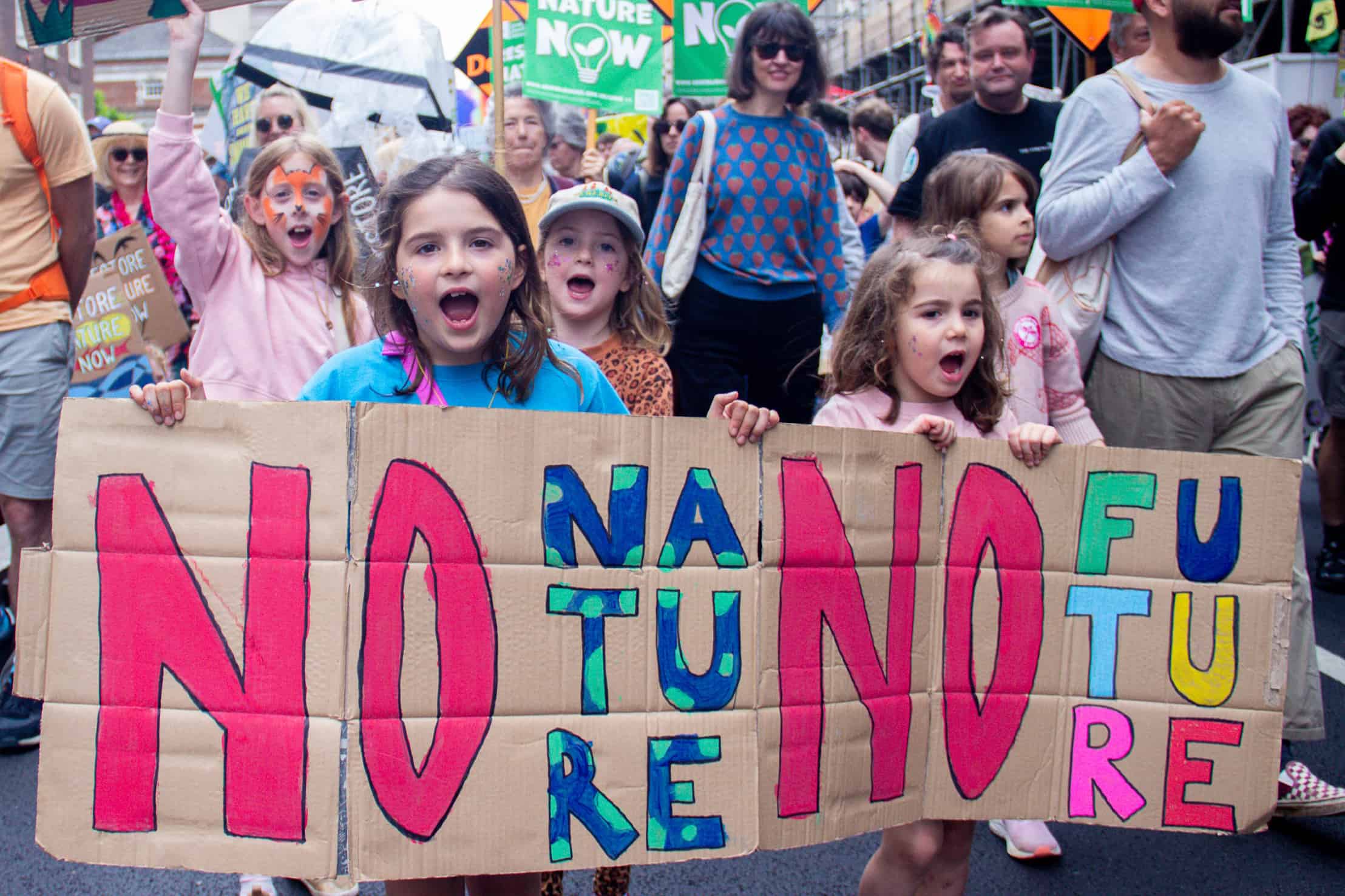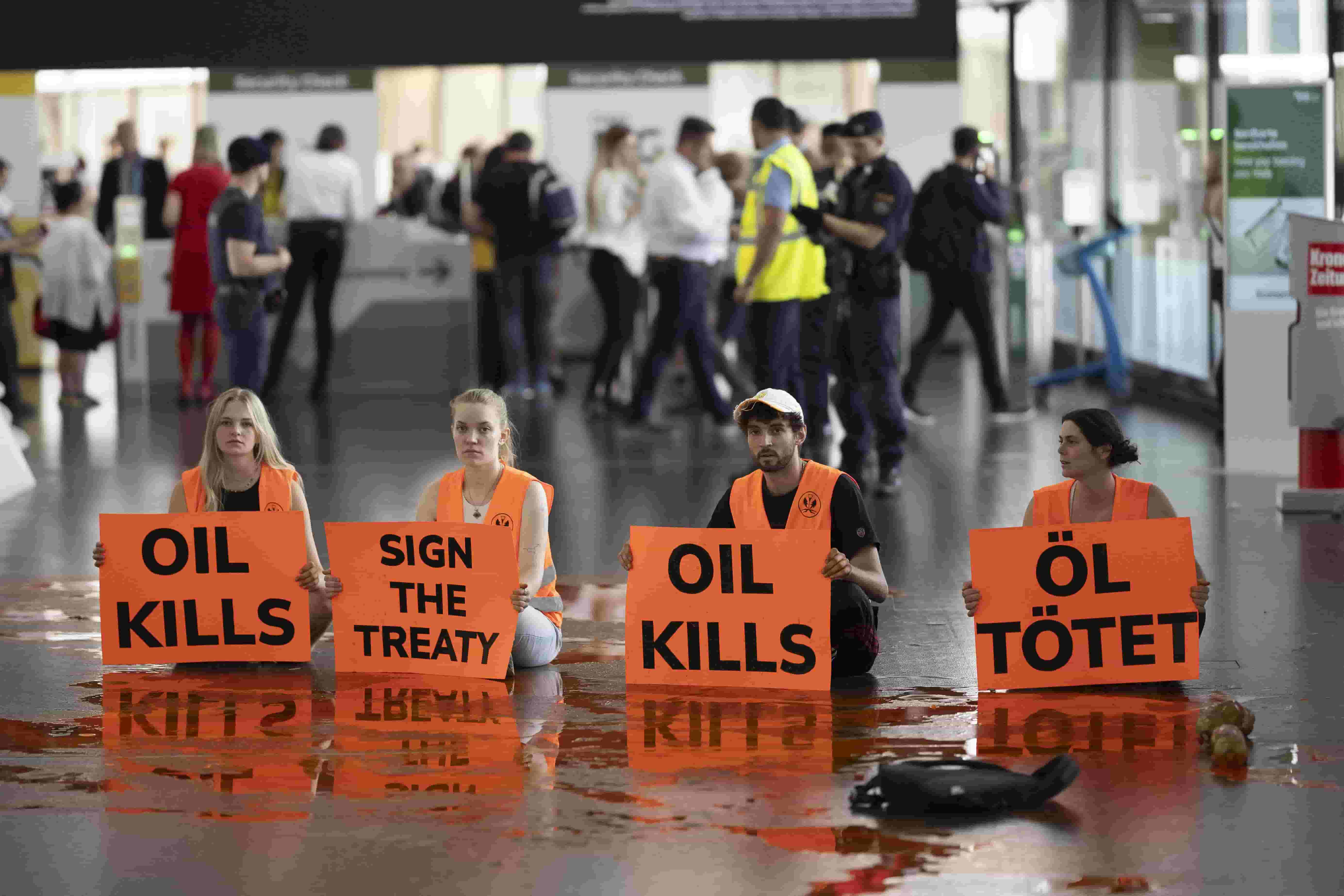*** Caution: Contents Hot! ***
The Democratic Republic of Congo’s (DRC) recent auction of licences to extract oil and gas in part of the Congo Basin rainforest - representing 5% of global tropical forests - should raise alarm bells across the world.
The proposed drilling locations include parts of the Virunga National Park - a UNESCO World Heritage Site which hosts around ⅓ of the worlds mountain gorillas - as well as areas that host elephants, other great apes and myriad insects; not to mention tropical peatlands that contain the equivalent of three years’ worth of global emissions.
Fossil fuel extraction in Africa has borne witness to untold human and ecological suffering: extraction in the Niger Delta, for example, has turned parts of the environment that used to hum with nature and brim with life-supporting rainforests and swamps into a post-apocalyptic wasteland, with the area losing 40% of its habitable terrain along with vegetation destruction and widespread water pollution, a loss which may now be repeated in the DRC.
The DRC’s oil auction cuts right to the heart of the climate and ecological emergency and structural inequalities in North-South relations.
Burning this oil will make our planet hotter. The trampling of the rainforest will deprive our Earth of another source of biodiversity. The draining of the peatland swamps will explode a carbon bomb in our atmosphere. Crucially, these effects will impact the Global South and marginalized communities globally the most.
The Long, Uncaring Arm of Fossil Capital
The DRC’s Hydrocarbons Minister Didier Budimba has explained the decision as a strategy to alleviate poverty for Congolese citizens, saying:
“We have a primary responsibility towards Congolese taxpayers who, for the most part, live in conditions of extreme precariousness and poverty, and aspire to a socio-economic wellbeing that oil exploitation is likely to provide for them.”
This rhetoric, though admirable, goes against analysis of the proposed plans by BankTrack who state that potential hydrocarbon pollution would affect the health and food security of up to 50,000 Congolese families who rely on the fishing resources of Lake Edward.
More than this, renewed oil exploration in the DRC has been noted by some groups as a threat to stability in the vulnerable post-conflict country; while the threats and violence against environmental defenders by the state (sometimes in support of international energy giants!) - in the country ranked one of the deadliest in the world to be an environmentalist - shows that perhaps the human cost of exploration is greater than Mr. Budimba cares to admit.
There is no doubt that the DRC is selling their oil because it is poor. But it was not always so. Belgium’s colonization and exploitation of the DRC was genocidal. While the Belgian King, Leopold II, gained some $1.1 billion from the DRC off work produced by enslaved Congolese people, it left the DRC one of the poorest nations in the world. Today nearly 75% of Congolese live on less than $1.90, while it owes over $6 billion in debt to international monetary groups, governments, and private companies.
This socio-economic reality is consistent across the continent, and is compounded by the reality that more than half of African nations that export oil and gas rely on fossil fuel exports for more than 50% of their total export revenues. However, these export revenues are undercut and undermined by the fact that the majority of fossil fuel financing, exploration and project management comes from Global North corporations, meaning the majority of the profits flow out of Africa and into the pockets of the already-rich: a "fossil fuel trap".
Postcolonial Plunder

A quick dive into the "top five leading oil and gas projects in Africa" up to 2021 demonstrates how ‘host’ countries own very little (if any) of the infrastructure or commercial interests in new oil and gas explorations on the continent, with most done in ‘partnership’ with fossil fuel beasts from the Global North or investment arms of more powerful nation states. In fact, the global fossil capital network contains no African corporations or countries at all. Here are the five:
-
i) Norwegian energy major Equinor and Shell - the latter responsible for disastrous oil spills in the Niger Delta - have generously given the Tanzanian government the “right to participate with a 10% interest” in the Tanzania Liquefied Natural Gas Project
ii) The Rovuma LNG Project in Mozambique is a joint venture between climate deniers ExxonMobil, Italian fossil fuel company Eni, and the China National Petroleum Corporation.
iii) Mozambique LNG is also funded by fellow climate-deniers Total - also responsible for the horrific East African Crude Oil Pipeline.
iv) The ironically named ‘Gas Revolution Industrial Park’ in Nigeria has been developed by a consortium from South Korea, China and the United Arab Emirates;
v) Also in Nigeria, the Zabazaba and the Etan fields are being developed by Nigerian Agip Exploration and Shell Nigeria Exploration and Production Company, both of which are wholly owned and controlled by Eni and Shell respectively, who have a longstanding relationship as co-polluters and ecological destroyers in the country.
The relationships listed above mark a continuation of what Jason Hickel terms ‘postcolonial plunder’ - the drain of $152 trillion from South - North since 1960 - and a continuation of imperial forms of unequal exchange and extractivism. Clearly Mr. Budimba is right to want to provide a better life for his fellow Congolese: they deserve full, happy and healthy lives; but getting into bed with big oil cannot be the answer.
Climate Justice: Reparations, not Auctions!
Ensuring a just transition across Africa will not be uniform or easy, yet over the last two decades only 2% of global investments in renewable energy were made in Africa, a continent which, according to CarbonTracker, has the potential to become a ‘renewables superpower’ accounting for 39% of total global clean-energy potential.
However, whether or not such a transition will happen depends, in part, on a justice-led response from the wider international community.
In 2009, the wealthiest nations promised $100 billion to poorer nations to help them adapt to and mitigate the climate crisis. That promise was broken. Meanwhile, the Global North continues to be responsible for 92% of excess emissions, while Nigeria and 47 sub-Saharan African countries - with 1/8th of the world's population - contribute less than 1% of excess emissions.
The DRC offering further exploitation of its natural resources to the international community is not only environmentally disastrous, but is also symptomatic of the neocolonial shackling of poorer nations with international debt as ‘aid’ and ‘loans’.
The forms of financial ‘assistance’ currently offered to many countries in the Global South consist of an unjust and dizzying monetary network in which lenders (institutes from the Global North) impose impossible debt upon the recipients (countries in the Global South), who are poorer to begin with- largely due to colonial exploitation by those same lending countries- and are then expected to repay these debts to lift themselves out of the poverty imposed on them in the first place by their creditors.
Calls are rising up around the world for climate debt cancellation, led by people from most affected areas. These demands for climate reparations address the debt that is owed to the people of the Global South, who are (and will continue to be) most affected by a climate breakdown to which they have contributed the least.
These may take many forms and may require a reframing of systems and a different understanding of ‘debt’, as well as targeted funding towards local organisations who understand the nuanced complexities of environmental issues on the ground, particularly in the context of corrupt institutions.
The Global North has a moral (and perhaps legal) duty to cancel debt and heed the calls for climate reparations and climate justice to facilitate a just and equitable transition away from fossil fuels.
Only then will poorer nations like the DRC not have to auction off precious biodiversity hotspots and carbon sinks.
Only then can we begin to face the climate and ecological emergency together in a more just and equitable way.
